Halal Cosmetics are on the rise in the beauty industry but is it just a trend or a fad?
Are consumers of the skincare industry even aware of halal beauty yet?
How effective is it?
People need answers to why this halal skincare rose in the first place. Because halal cosmetic formulations are at a different level. Consumers know nothing about it!
In recent years, there has been a notable shift towards conscious consumption, with consumers seeking products aligned with their values, beliefs, and lifestyle choices. Among these considerations is the adherence to Halal standards, reflecting Islamic principles of purity and ethical sourcing.
The concept of Halal, which translates to “permissible” or “lawful” in Arabic, encompasses various aspects of life, including food, finance, and personal care products. For many Muslims, ensuring that the products they use comply with Halal standards is important not only from a religious perspective but also as a reflection of their ethical and moral beliefs.
The conventional cosmetics industry often includes ingredients and processes that may raise concerns among consumers who prioritize Halal principles. These concerns can range from the use of animal-derived ingredients such as alcohol, gelatin, or certain types of animal fats to the methods of production, which may involve practices deemed unethical or harmful.
In response to this demand, Halal cosmetics were developed to provide Muslims with alternatives that align with their religious and ethical values. These products undergo rigorous scrutiny to ensure that they are free from prohibited substances and manufactured by Halal guidelines.
By offering Halal-certified cosmetics, brands cater to a growing market segment of consumers seeking products that not only meet their beauty needs but also resonate with their religious and cultural identity.
In this blog, we delve into the world of Halal skincare formulations, exploring the standards and regulations that govern them, as well as the burgeoning market they cater to.
From understanding the intricacies of certification processes to dissecting ingredient lists, we aim to provide insights that empower both consumers and industry professionals alike.
Understanding Halal Skincare
Analysing the basic definition of halal skincare will give you a clear insight into what it is and its significance in the cosmetic industry;
*** Halal skincare refers to skincare products that comply with Islamic law, particularly in terms of ingredients and production processes. In Islamic law, “halal” means permissible or lawful, and it applies not only to food but also to various aspects of daily life, including skincare and cosmetics.
Halal-certified cosmetics are formulated without any ingredients that are considered haram (forbidden) in Islam, such as alcohol and certain animal-derived substances like pork or alcohol-based ingredients.
Additionally, the production process must adhere to Islamic principles, ensuring that the products are manufactured in an ethical manner and line with Islamic guidelines.
Significance Of Halal Beauty Products
Latest research has indicated that women who use lipstick will end up “eating” roughly 4-9 pounds in their lifetime due to locking their lips or drinking or eating while wearing it.
Some Muslims are unaware of the components and chemical compositions of common lipsticks, which include fatty acids, gelatins, alcohol, and animal extracts.
Approximately 60% of the world’s Muslims live in the Asia-Pacific region. For Muslim women, particularly pious ones, using halal cosmetics is a must. This is mostly a form of obedience, as Muslims are barred from consuming certain components.
Other major significance of halal beauty products are as follows;
- Consumer Trust:
Certification and adherence to halal standards provide consumers, both Muslims and non-Muslims, with assurance regarding the quality, safety, and ethical sourcing of ingredients in beauty products. This trust can lead to increased sales and loyalty among consumers who prioritize ethical and religious considerations.
- Ethical Considerations:
Halal beauty products often incorporate ethical practices such as cruelty-free testing and sustainable sourcing of ingredients. This appeals to a broader demographic concerned about animal welfare, environmental sustainability, and fair trade practices.
- Cultural Sensitivity:
In regions with significant Muslim populations, offering halal beauty products demonstrates cultural sensitivity and inclusivity. It acknowledges the diversity of consumer preferences and fosters a more inclusive market environment.
- Health Benefits:
Halal beauty products often prioritize natural and plant-based ingredients, avoiding potentially harmful substances like alcohol and certain animal-derived ingredients. This focus on natural and organic ingredients may offer health benefits, particularly for individuals with sensitive skin or allergies.
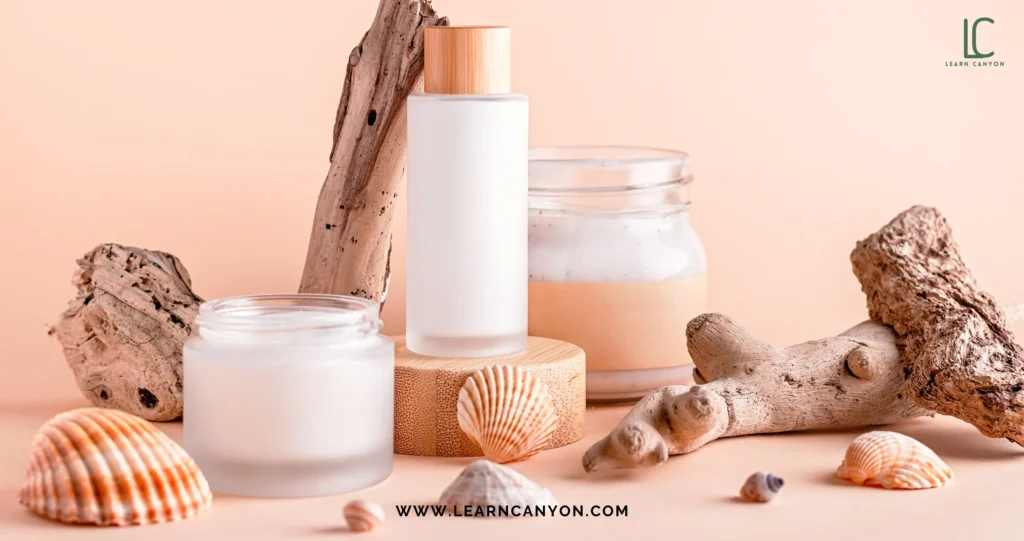
Focusing On Halal Skincare Formulation
Halal skincare formulations adhere to principles and guidelines rooted in Islamic law. These principles ensure that the products are permissible (halal) for use by Muslims.
Here are the key guidelines:
- Permissible Ingredients:
- Animal-Derived Ingredients: Any animal-derived ingredients must come from halal animals (e.g., cows, sheep) that have been slaughtered according to Islamic law (zabiha). Ingredients from haram (forbidden) animals, such as pigs or predatory animals, are strictly prohibited.
- Alcohol: Ethanol or alcohol derived from the fermentation process is typically prohibited. However, denatured alcohols that are not intoxicating and are used for cosmetic purposes may be permissible under certain conditions.
- Synthetic and Plant-Based Ingredients: These are generally considered halal, provided they do not contain any haram substances and are not contaminated during production.
- Production and Manufacturing Processes:
- Cleanliness and Purity: The production facilities must maintain high standards of cleanliness and hygiene. Equipment should be thoroughly cleaned to prevent contamination with haram substances.
- Separation: Halal products must be processed, stored, and transported separately from non-halal products to avoid cross-contamination.
- Ethical Practices: The manufacturing process should be ethical, not involving any form of exploitation or harm, aligning with broader Islamic ethical guidelines.
- Certification and Transparency:
- Halal Certification: Products should be certified by a reputable halal certification body. This certification process involves thorough inspection and verification of the ingredients, manufacturing processes, and overall compliance with halal standards.
- Labelling: Clear labelling is essential to inform consumers about the halal status of the product. Labels should include certification marks and relevant information about the ingredients.
- Sourcing and Traceability:
- Ethical Sourcing: Ingredients should be sourced ethically, considering factors such as sustainability, environmental impact, and fair trade practices.
- Traceability: Companies should be able to trace the origins of their ingredients and ensure that all stages of the supply chain comply with halal requirements.
- Quality Assurance:
- Continuous Monitoring: Regular audits and inspections should be conducted to ensure ongoing compliance with halal standards.
- Training and Education: Staff involved in the production and handling of halal skincare products should be adequately trained in halal guidelines and principles.
Benefits Of Halal Skincare Formulation
Halal Cosmetics can benefit Muslim women as well as women of other religions who prefer natural and ethical beauty products.
A couple of the benefits of Halal skincare formulations are listed below:
- Free of alcohol and animal-derived ingredients
Halal skincare formulations do not contain any components that are prohibited in Islam, such as animal products. As a result, Muslim women can shop for cosmetics without worry.
Halal Cosmetic formulations are ideal for delicate skin because they are free of harsh substances such as alcohol and animal byproducts. As a result, they are ideal for anyone looking to avoid irritants and allergens. They are safe to use because they do not include any potentially harmful additives.
Furthermore, because Halal goods contain no alcohol, they will not cause irritation or dryness.
- Hypoallergenic and non-irritating.
It may be challenging for Muslim women to obtain cosmetics that uphold their beliefs. Halal cosmetics are a fantastic choice for women because are often hypoallergenic and non-irritating.
Cosmetics labelled “hypoallergenic” do not contain any of the numerous ingredients known to cause allergic responses or skin irritation.
Halal skincare formulations are safe for people with sensitive skin, especially those who have acne or rosacea. Several halal beauty products are hypoallergenic and will not cause inflammation. Due to these advantages, you can confidently use them to improve your appearance without worry of an allergic reaction.
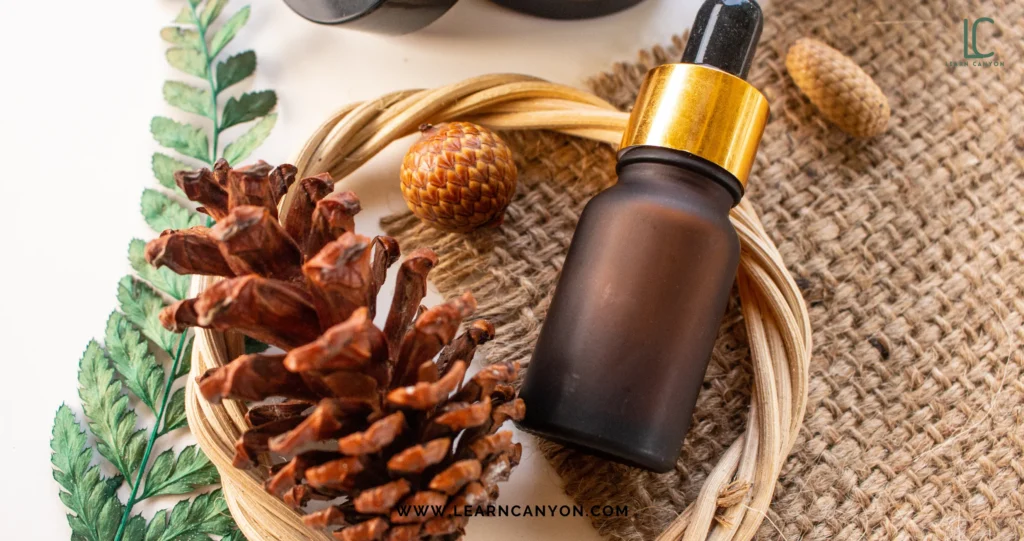
- No harmful ingredients.
All of the ingredients in Halal skincare formulations are permissible under Islamic law.
This category includes anything from alcohol to synthetic flavourings and colours. Halal cosmetics do not contain carcinogens, hormone disruptors, or other potentially harmful ingredients.
The following are some harmful compounds or substances commonly found in cosmetics:
- Phthalates have been linked to reproductive harm, many types of cancer, and endocrine system disruption.
- Parabens, a type of preservative used to extend product shelf life, are known to be absorbed via the skin and influence hormone function.
- Formaldehyde has been connected to human cancers. Triclosan has been linked to antibiotic resistance, whereas sulphates can irritate the skin and eyes.
- Inclusivity and Cultural Sensitivity
Respect for Diverse Needs: Offering halal beauty products demonstrates respect and sensitivity towards the cultural and religious needs of Muslim consumers. This inclusivity can enhance brand loyalty and broaden the customer base.
- No Animal Testing
Animal experimentation is incompatible with the halal living that Islam teaches us. Fortunately, no animals are injured during the testing of halal cosmetics.
Halal makeup brands only employ vegan and cruelty-free ingredients. Because of this, Halal cosmetics are assured to be free of cruelty. The Halal Quality Control (HQC) organisation certifies cosmetics that meet its high animal welfare standards. When Muslim women use halal cosmetics, they may be confident that they are using cruelty-free products.
- Respect for Diverse Needs
Offering halal-certified cosmetics formulation demonstrates respect and sensitivity towards the cultural and religious needs of Muslim consumers. This inclusivity can enhance brand loyalty and broaden the customer base.
- Environmental Friendly:
Halal skincare formulations contain environmentally friendly components. The components used in halal cosmetics are sourced responsibly to minimise their environmental impact. Natural ingredients such as plant extracts and oils are used instead of synthetic chemicals in these products. As a result, less waste is generated during production, and fewer potentially hazardous substances enter the environment.
Halal-certified cosmetic ingredients not only have a lower environmental impact, but they also frequently come in recyclable packaging. For these motives, if you’re a Muslim lady who cares about the environment, you should feel comfortable wearing Halal cosmetics.
- Availability In Several Markets & Cosmetic Stores
Halal makeup brands are available from a wide range of both large and small enterprises, rather than just a few select brands. The demand for all-natural, cruelty-free cosmetics has contributed to several well-known cosmetics manufacturers’ introduction of Halal products. As a result, you may now more readily select cosmetic formulations that meet your requirements.
Women now have a wealth of options because of the rise of shops that sell Halal foods. When we talk about Halal cosmetic formulations, we don’t simply mean nail polish or lipstick; we’re describing a wide range of products for your skin, hair, and face.
Ingredients Used in Halal Skincare Formulations
Halal-certified cosmetic ingredients are obtained from plants, earth, water, permitted animals butchered as per Islamic law, marine species deemed halal, and synthetic materials that are healthy for consumers and free of filth (najis).
Halal cosmetics manufacturers are substituting animal-derived chemicals with plant-derived components and precursor compounds to reduce customer scepticism and increase acceptance. Reducing the number of key elements in cosmetics improves certification by preventing the use of prohibited or undesirable compounds. Generally, manufacturers should obtain halal certification from their suppliers for all ingredients.
- List Of Ingredients Considered Halal in Formulations
| COSMETIC CATEGORY | HALAL INGREDIENTS |
Skin Whitening Agents | Arbutin, Ferulic acid, Hinokitol, Kojic acid, Resveratrol, Tranexamic acid, Vitamin B3, Vitamin C. |
Anti-Aging Agents | Capsanthin, Capsorubin, Delphinidin, Gallic acid, Genistein, Glycyrrhizin, Lutein, Phloretin, Salidroside, Sclareol, Trans-communic acid (TCA), Umbelliferone, Vitamin B3. |
Thickeners | Carboxymethyl cellulose, Carnauba wax, Carrageenan, Petrolatum |
Colourants | Carotene (red-orange), Lithospermum purple (violet), Paprika (yellow, orange, red), Safflower (yellow, red), Turmeric (yellow) |
Solvents | Avocado oil, Corn oil, Cottonseed oil, dipropylene glycol, Jojoba oil, Liquid paraffin (mineral oil), Polyethylene glycol, Safflower oil, Sesame oil, Water |
To get your hands on halal-based cosmetic formulations, you can join our platform where we train formulators with our advanced certified organic skincare and haircare formulations that are halal-based. You will get access to understand halal ingredients used in cosmetics on a deeper level.
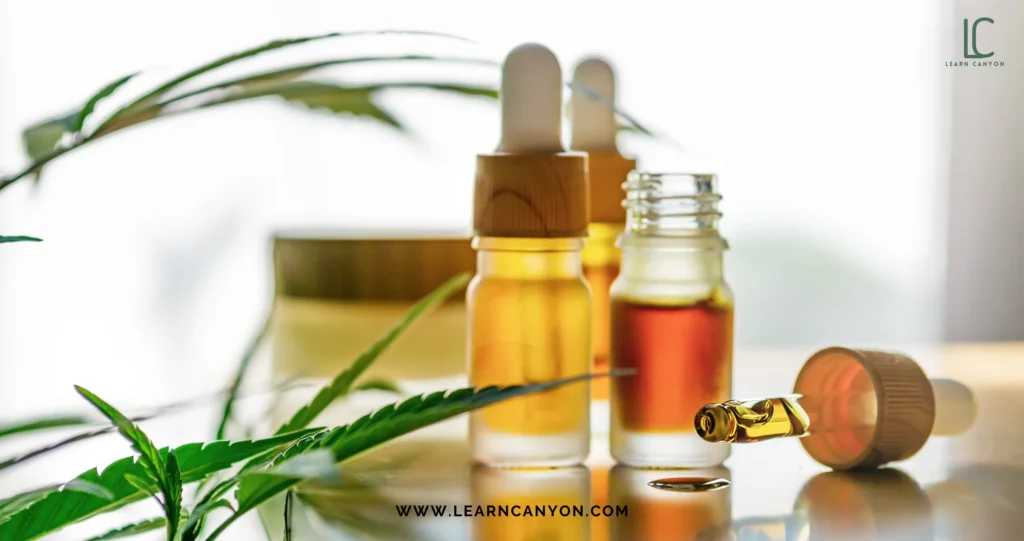
Common Ingredients Prohibited In Halal Skincare Products
Haram cosmetic ingredients are any constituents derived from human body parts, blood, forbidden animal parts and insects, and prohibited or restricted chemicals that are harmful or injurious to consumers.
Ingredients recognized to be prohibited or restricted by governing bodies in cosmetic products are recognized as haram.
| CATEGORY | HARAM (PROHIBITED) INGREDIENT EXAMPLES |
Restricted Chemicals | Chlorofluorocarbon propellants, Chloroform, Halogenated salicylanilides, Hexachlorophene, Mercury compounds, Methylene chloride, Prohibited cattle materials, Vinyl chloride, Zirconium-containing complexes. |
Insect Derived | Carmine dye (Cochineal; E 120 or Natural Red 4), Crimson dye (from Kermes vermilio), Laccaic acid, Beeswax. |
Human Derived | Amniotic fluid, Growth factors, Placenta. |
Porcine Derived | Amniotic fluid, Gelatin, Growth factors, Placenta |
Best Halal Skincare Formulation
The best Halal skincare formulations adhere to specific guidelines to ensure they comply with Islamic law. These guidelines include using permissible (halal) ingredients and avoiding haram (forbidden) substances.
Examples of Best Halal Skincare Formulations:
- Cleansers:
- Gel Cleansers: Formulated with plant-based surfactants like coco-glucoside and decyl glucoside derived from coconut and glucose.
- Foaming Cleansers: Can include ingredients like aloe vera juice, chamomile extract, and glycerin from vegetable sources.
- Toners:
- Hydrating Toners: Often contain rose water, witch hazel (alcohol-free), and glycerin.
- Clarifying Toners: Include natural astringents like green tea extract and apple cider vinegar (alcohol-free).
- Moisturizers:
- Creams and Lotions: Use plant oils like argan oil, jojoba oil, and shea butter. Emulsifiers can be derived from olive oil (such as cetearyl olivate).
- Gel-based Moisturizers: Contain ingredients like hyaluronic acid (derived from non-animal sources), aloe vera, and plant-based glycerin.
- Serums:
- Anti-Aging Serums: Formulated with botanical extracts like green tea, pomegranate, and vitamins C and E from plant sources.
- Hydrating Serums: Include hyaluronic acid (plant-derived), panthenol (pro-vitamin B5), and seaweed extract.
- Sunscreens:
- Mineral Sunscreens: Use zinc oxide and titanium dioxide as active ingredients, suspended in bases made from plant oils and waxes.
Popular Halal Skincare Brands:
- Iba Halal Care:
- Key Formulations: Aloe Aqua Face Wash, Advanced Activs Youth Preserve Skin Glow Power Serum.
- Amara Halal Cosmetics:
- Key Formulations: Purifying Toner, Moisturizer with aloe vera and chamomile.
- PHB Ethical Beauty:
- Key Formulations: Anti-Aging Serum, Brightening Cleanser.
- Wardah:
- Key Formulations: White Secret Pure Brightening Cleanser, Renew You Anti-Aging Night Cream.
- Saaf Skincare:
- Key Formulations: Pure Face Cleanser, Ultimate Moisture Face Serum.
- Sampure Minerals:
- Key Formulations: Flawless Foundation, Gentle Cleansing Milk.
When selecting halal skincare products, it’s essential to look for certifications from recognized bodies like Halal India, JAKIM (Malaysia), or IFANCA (USA) to ensure the products adhere to halal standards. Additionally, reading ingredient lists and understanding the sources of those ingredients can help in making informed choices.
Importance of transparency in halal ingredient sourcing and labelling
1. Consumer Trust and Confidence
Building Trust:
- Informed Choices: Transparency allows consumers to make informed decisions about the products they use, knowing they align with their religious beliefs and ethical values.
- Consistency and Reliability: Clear labelling and transparent sourcing practices build a reliable brand reputation, fostering long-term customer loyalty.
Avoiding Misleading Claims:
- Preventing Deception: Accurate labelling prevents misleading claims that can undermine consumer trust if discovered.
- Compliance with Regulations: Ensuring adherence to halal certification standards and avoiding penalties or recalls due to non-compliance.
2. Religious Adherence
Halal Compliance:
- Ingredient Verification: Transparency ensures all ingredients are verified as halal, adhering to Islamic dietary laws.
- Certification Standards: Clearly labelled products that display recognized halal certifications reassure consumers of the product’s compliance with halal standards.
Avoiding Haram Substances:
- Detailed Ingredient Lists: Comprehensive ingredient lists help consumers avoid haram (forbidden) substances, ensuring their purchases align with their faith.
- Cross-Contamination Prevention: Transparency in manufacturing processes reduces the risk of cross-contamination with non-halal ingredients.
3. Ethical and Health Considerations
Ethical Sourcing:
- Animal Welfare: Transparency ensures that animal-derived ingredients come from ethically treated animals slaughtered according to halal practices.
- Environmental Impact: Consumers are increasingly interested in the environmental impact of their purchases; transparent sourcing can highlight sustainable and ethical practices.
Health Benefits:
- Avoiding Harmful Ingredients: Transparency helps consumers avoid harmful additives, ensuring the products they use are safe and healthy.
- Allergen Awareness: Clear labelling of potential allergens helps consumers with sensitivities make safe choices.
4. Market Competitiveness
Consumer Preference:
- Informed Demand: As consumers become more informed, they demand transparency and ethical practices, driving market trends.
- Brand Differentiation: Brands that emphasize transparent practices can differentiate themselves in a competitive market, appealing to conscious consumers.
Regulatory Compliance:
- Meeting Global Standards: Transparency ensures compliance with international halal standards, facilitating market access in different regions.
- Avoiding Legal Issues: Proper labelling and sourcing practices help avoid legal issues and potential market recalls.
5. Education and Awareness
Consumer Education:
- Understanding Halal Principles: Transparency educates consumers about what constitutes halal, promoting a deeper understanding and adherence to Islamic principles.
- Awareness of Ethical Issues: Highlighting ethical sourcing practices raises consumer awareness about broader social and environmental issues.
Industry Standards:
- Raising Industry Standards: Promoting transparency can lead to higher industry standards, encouraging other brands to adopt similar practices.
- Collaborative Improvements: Transparent practices can foster collaboration within the industry to improve overall standards and practices.
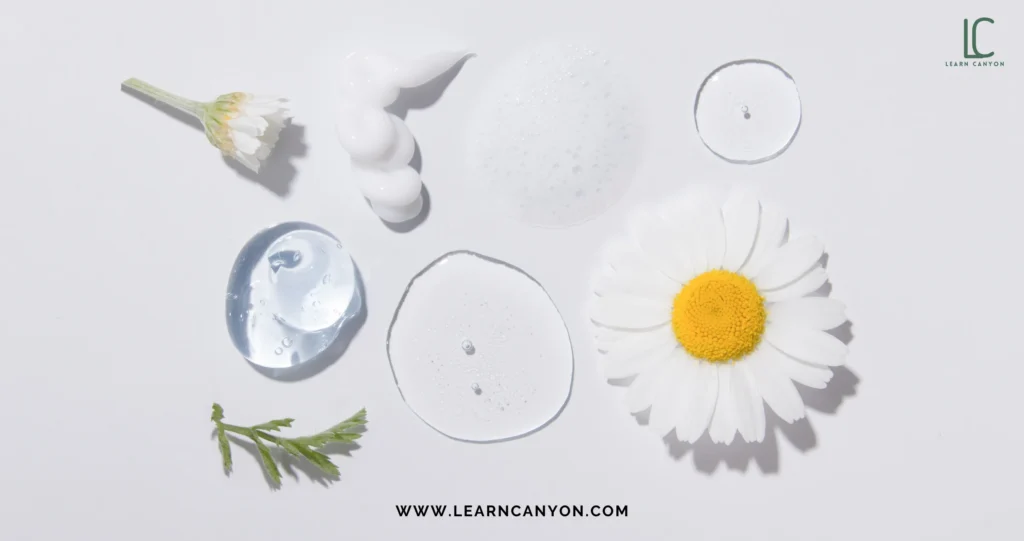
Understanding Halal Certification Standards
This part elaborates on the complex journey that products take from conception to certification, ensuring that they adhere to the tight requirements established by Islamic law, which is critical for Muslim consumers globally.
Halal Certification Criteria
The certification procedure uses scientific evaluation to ensure the quality and origin of each product. Gelatin, a major thickening in cosmetics, must be obtained from halal sources, such as aquatic animals or cattle slaughtered using Islamic procedures, not banned sources like pigs.
Similarly, the use of alcohol in beauty products is complex; it may be included if it is not sourced from grapes or dates and is utilised in a way that does not induce intoxication, demonstrating a profound understanding of chemistry and religious law.
Scientific Rigour in Certification
The research behind halal certification for cosmetic products includes extensive testing and verification procedures. Advanced technology-equipped laboratories check product compositions to guarantee they meet halal criteria.
The certification process also takes into account the manufacturing environment. Facilities are thoroughly inspected to verify they follow Good Manufacturing Practices (GMP) and that there is no danger of cross-contamination with non-halal components. This part of the certification process emphasises the significance of a comprehensive strategy that incorporates Islamic law concepts as well as optimal manufacturing and quality control methods.
Economic and Ecological Considerations
Despite scientific and religious standards, halal certification for cosmetics represents social and environmental responsibility. Halal-certified products typically satisfy higher purity and quality standards, enticing not only Muslim consumers but also others seeking ethical and ecological beauty solutions.
The adherence to cruelty-free monitoring and the avoidance of dangerous chemicals aligns with modern consumer ideals, adding to the attraction of halal-certified products.
Global Market Statistics of Halal Skincare Products
The worldwide halal cosmetics market has reached $33.3 billion in 2023. Looking ahead, IMARC Group predicts the market to reach $71.3 billion by 2032, with a compound annual growth rate (CAGR) of 8.6% between 2024 and 2032.
The market is quickly rising, owing to a rising global Muslim people, increased demand for ethically sourced products, demanding Halal certification regulations, and efficient use of internet advertising and online retail channels.
Final Thoughts
From the above pointers, we understood how Halal cosmetics creation involves acquiring halal ingredients, adhering to halal practices throughout manufacturing, and verifying product performance aligns with Islamic traditions.
This article clarifies and showcases key aspects of halal skincare formulation, its benefits, halal and haram ingredients, halal certification criteria and much more to bring insights to cosmetic formulators to formulate halal cosmetics in the right process.
Halal cosmetics go beyond religion by requiring extensive scientific inquiry to ensure safety, effectiveness, purity, and sensitivity to the holistic wants of the Muslim community.
For in-depth practice in formulating halal-based cosmetics, we at Learn Canyon bring you an extensive training program where you will learn to formulate cosmetics using halal ingredients with the help of high-tech methodologies and effective formulas.




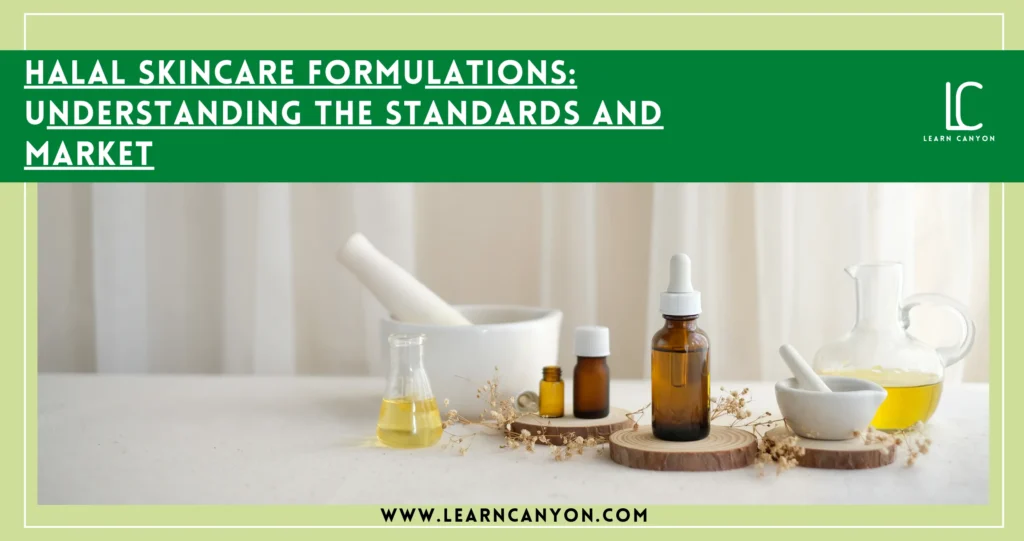



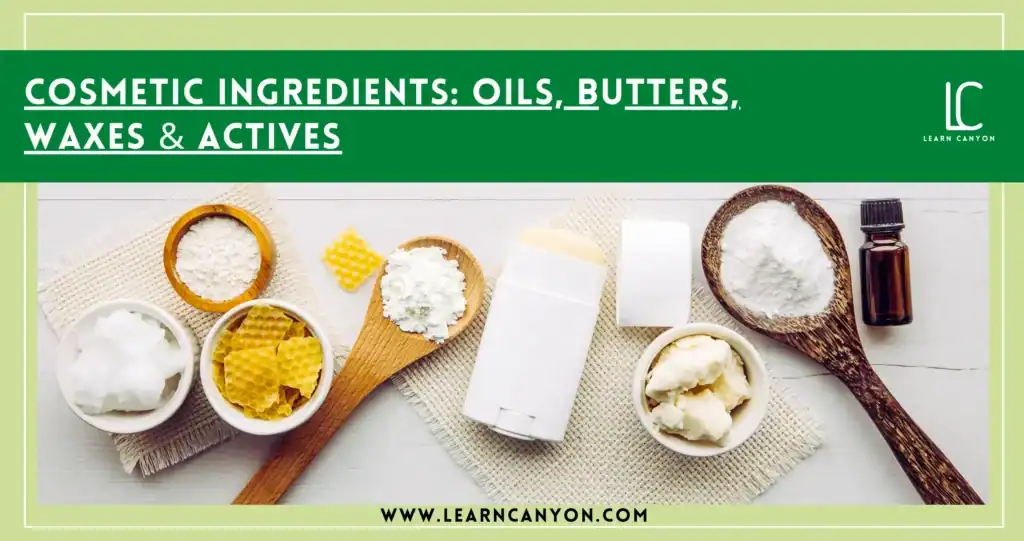



1 thought on “Halal Skincare Formulation: Understanding the Standards and Market”
I am using Skoon oil for relieving joint pains / muscle relaxation, is this product Hilal in islamic context.